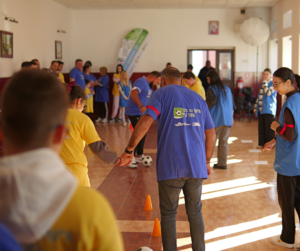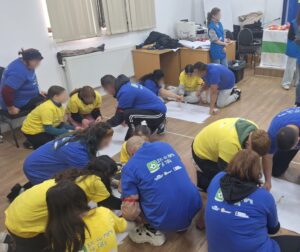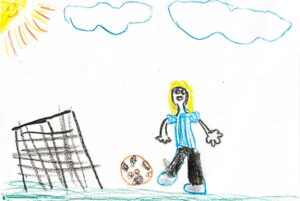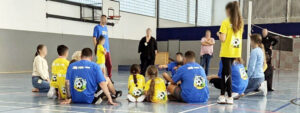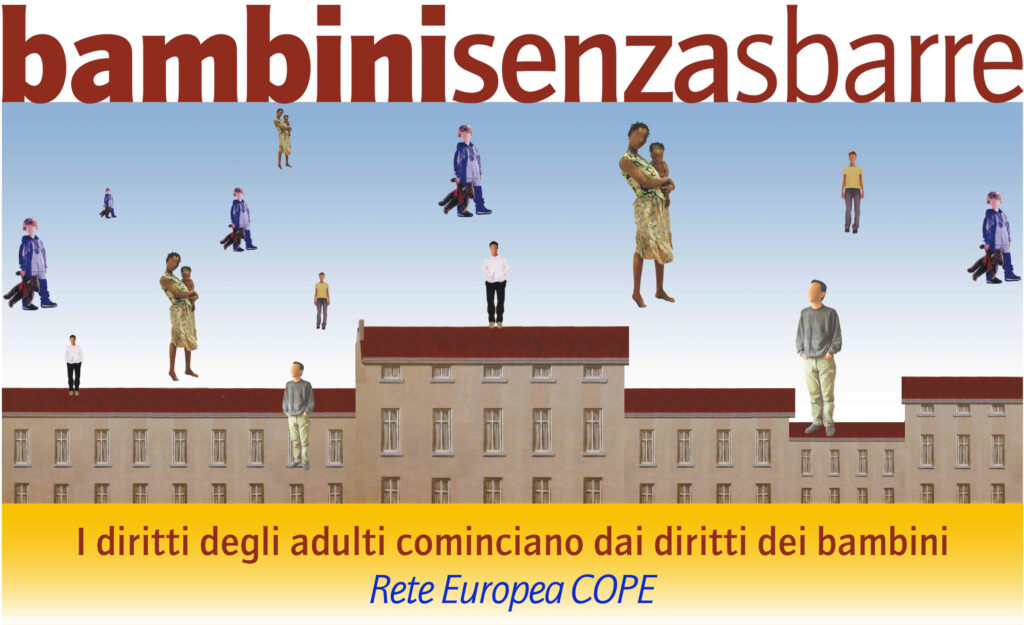Prisons are generally not designed as child-friendly spaces. Children who visit their imprisoned parents are often exposed to intimidating and harsh environments. However, regular and ongoing contact with a parent in prison when in children’s best interests is crucial for every child’s well-being. Prisons can evolve into more supportive and accommodating environments for families. This is the central aim of ‘Game with Mum & Dad’: to provide alternative opportunities for child-friendly, quality family contact in prisons.
For this initiative to succeed, child safeguarding must be prioritised. Proper safeguarding practices and policies ensure that children are not exposed to any harm and are treated with the utmost care.
COPE standards at the core
This campaign adheres to COPE’s child safeguarding standards, designed specifically to protect children with an imprisoned parent, taking into account the unique challenges that arise when children visit or interact with their parents in prison. When implemented in the context of GWMD, safeguarding policies ensure that all staff and volunteers involved are equipped with the knowledge and skills necessary to create a safe and nurturing environment for the children.
What does this mean in practice? We’re talking about adherence to the principle of ‘do not harm’ at all stages of the games (their planning, execution and follow up). This could be prison staff carrying out security checks and search measures in child-friendly ways that respect child dignity. It could be facilitators of the games adhering to the ‘two adult rule’ – this means having at least two adults present, which helps to foster a safe atmosphere and prevent any potential harm or abuse.
Child safeguarding in practice
In practical terms, implementing these safeguarding measures requires training for prison professionals, volunteers and all relevant staff. All participating staff must carry out an e-learning course, equipping them with skills to recognise the specific needs and vulnerabilities of children whose parents are imprisoned. It provides insights on how to recognise signs of distress, how to create a supportive environment and how to eliminate risks.
For instance, children visiting a parent in prison may experience anxiety or fear, and it’s essential for those facilitating the games to be aware of how to manage such emotions delicately. The training also covers physical and emotional safety, ensuring that children are never placed in situations where they may feel threatened, overwhelmed or neglected.
Additionally, GWMD follows two essential guidelines with regard to the use of images in communication, namely:
- absolute protection of children’s privacy in all internal and external communications related to GWMD events and activities
- prioritising children’s voices and perspectives, represented through their drawings, words and writings, ensuring their experiences are shared authentically and respectfully.
So far 29 individuals have carried out this e-Learning course, including 2 professionals working within prison services. This marks a major step towards systematising the safeguarding of children visiting a parent in prison across Europe.
Towards a culture of safeguarding in prisons
Child safeguarding is not just a box to tick: this campaign aims to embed a child-centred, child-rights approach within prison environments, one that will last beyond the campaign itself. When child safeguarding for those visiting a parent becomes a routine part of prison settings, it not only improves children’s experiences but also fosters more humane and family-centred perspectives within prisons.

